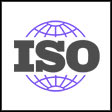ISO 22000 is an international standard that specifies requirements for a food safety management system (FSMS). Overall, ISO 22000 certification demonstrates an organization's commitment to producing safe food products and maintaining food safety throughout the food supply chain, making it a valuable tool for organizations seeking to enhance their food safety performance and achieve food safety management excellence.

Food Safety Management System (FSMS)
ISO 22000 provides a framework for organizations involved in the food chain to establish, implement, maintain, and continually improve a FSMS. The standard focuses on ensuring the safety of food products throughout the entire food supply chain.
Scope
ISO 22000 is applicable to organizations of all sizes, including food manufacturers, processors, distributors, retailers, and service providers. It is designed to be flexible and adaptable to various food industry sectors and supply chain contexts, allowing organizations to tailor their FSMS to suit their specific needs and food safety objectives.
Key Requirements
The standard outlines several key requirements that organizations must fulfil to achieve ISO 22000 certification. These include:
- Establishing a food safety policy that reflects the organization's commitment to producing safe food products and complying with applicable legal and regulatory requirements.
- Identifying food safety hazards, assessing their significance, and implementing controls to prevent or mitigate food safety risks throughout the food supply chain.
- Implementing prerequisite programs (PRPs) and operational prerequisite programs (OPRPs) to maintain a hygienic environment and control food safety hazards at key stages of the food production process.
- Establishing a Hazard Analysis and Critical Control Points (HACCP) plan to identify and control critical control points (CCPs) where hazards can be prevented, eliminated, or reduced to acceptable levels.
- Implementing a food safety management system that includes documented procedures, records, and monitoring activities to ensure compliance with food safety requirements and standards.
- Continually improving the FSMS through corrective actions, management reviews, and ongoing commitment to food safety excellence.
Certification Process
To achieve ISO 22000 certification, organizations must implement a FSMS that complies with the requirements of the standard and undergo an audit by an accredited certification body. The certification process typically involves a documentation review (Stage 1 audit) and an on-site assessment of the organization's FSMS implementation and effectiveness (Stage 2 audit).
Benefits of Certification
ISO 22000 certification offers several benefits to organizations, including:
- Enhanced food safety and compliance with legal, regulatory, and customer requirements.
- Improved confidence and trust among customers, consumers, and stakeholders regarding the safety and quality of food products.
- Increased competitiveness and market differentiation through certification and recognition of food safety management best practices.
- Reduced risks of foodborne illnesses, product recalls, and other negative consequences associated with food safety incidents and failures.
- Improved operational efficiency, cost savings, and business continuity through effective food safety management practices.
Contact
We will be happy to give you more information about our quality solutions. Please fill in this form to contact us, we will respond as soon as possible.


